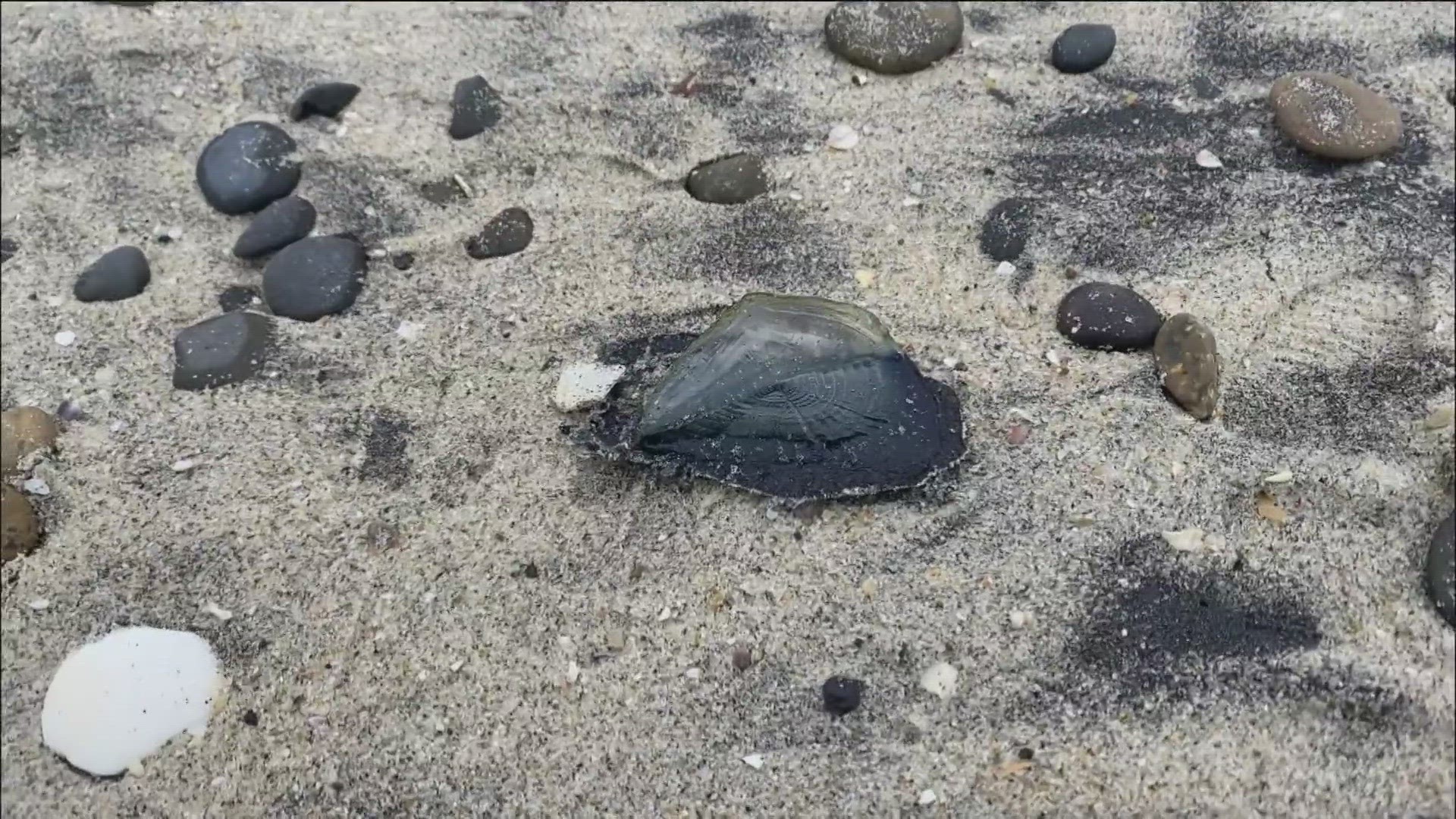SAN DIEGO — If you've been to the beach lately, you may have noticed blue blobs scattered across the sand. We're working for you to learn more about these fascinating sea creatures that sail on the ocean's surface.
“They're a really important part of our ecosystem, and it's really exciting to see them because they are sort of what I would consider rare,” said Anya Stajner, Ph.D. student at Scripps Institution of Oceanography.
Camouflaged in the colorful rocks at Torrey Pines State Beach, you'll spot some unusual blue jelly-like creatures wedged in the sand.
Angelo Scolari was digging for rocks to throw and noticed the blue sails scattered across the shoreline. “They blend in with the rocks really well,” said Scolari.
They look like jellyfish but when CBS 8 went to Scripps Institute of Oceanography we learned they're part of the hydrozoans group.
“These things that we're seeing washing up on our shores are called Velellas Velellas. Even though they look like jellyfish, they're actually not,” said Stajner. “They're more closely related to an animal called the Portuguese Man of War.”
She is studying Biology and Oceanography and says during her undergrad she studied the Velellas Velellas that earned the nickname "By the wind sailors" after their sail like shape.
“Which couldn't be more accurate because these guys really can't move themselves around in the water. They are totally at the mercy of their little sails, which is why they can sometimes wash ashore,” said Stajner.
Stanjer says they are a cosmopolitan species, meaning they float across the world but it often takes a combination of shortboard winds and plentiful food to see them wash ashore.
They'll eat lots of little zooplankton,” said Stajner.
CBS 8 dug through its archives and found Velella Velellas saturated across San Diego beaches in 2015 and 2016.
Although they do have stingers like jellyfish, do they sting you if you touch them?
“I would recommend against touching anything that you don't really know what it is. But the level of the Velella Velellas is particularly don't have any toxins in them that would hurt a human as far as we know,” said Stajner. “If you're a larval fish, though, then beware, because the Velella Velellas will get you.”
The Velella Velellas have been spotted at Torrey Pines State Beach but they’ve also recently washed ashore all along the southern California coast.
WATCH RELATED: New California law makes it illegal to fish for Great White Sharks

